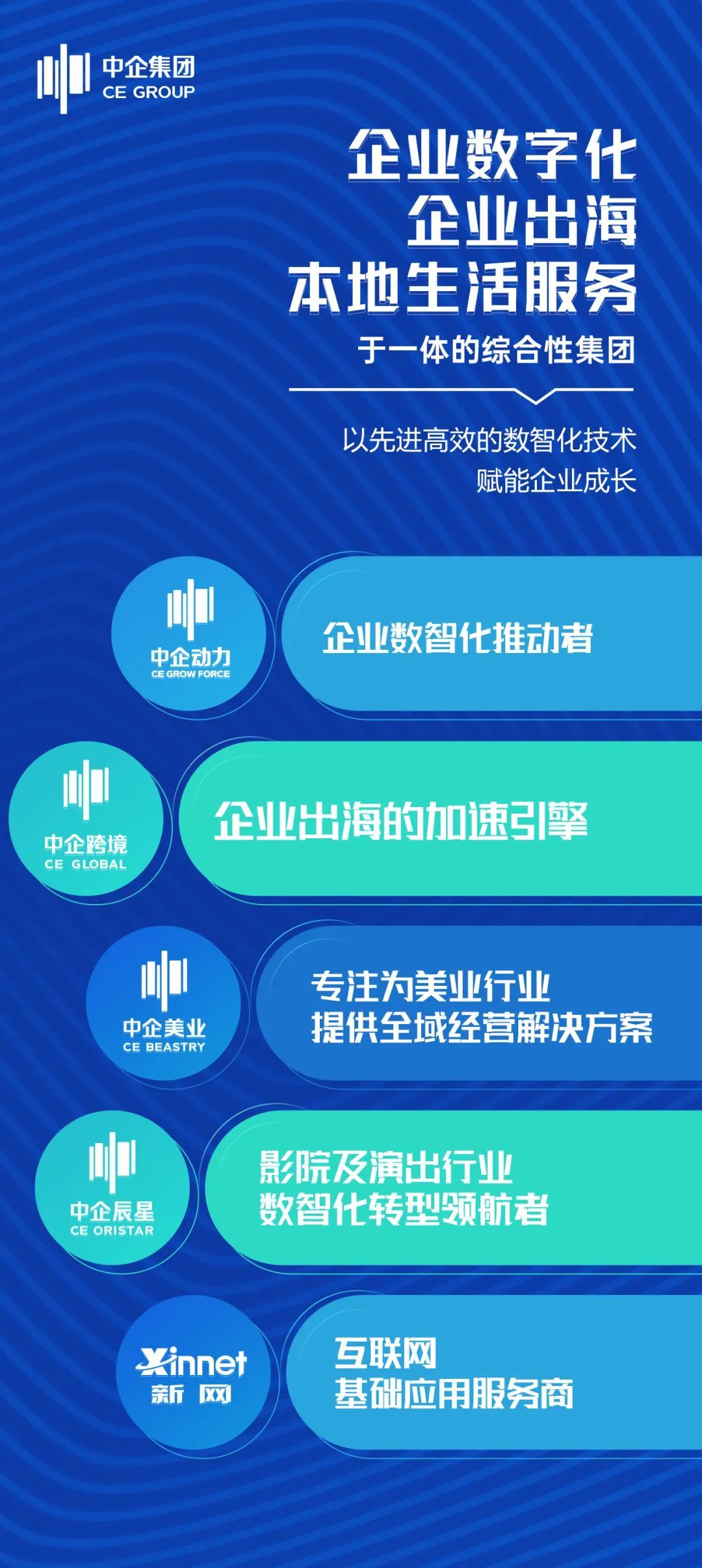From '.cn' to '.中国', why are more and more B2B companies choosing country-code top-level domains (ccTLDs)? | Industry Observation
2025-04-21
China Enterprises Group


With global interconnection, brand orientation, and data security becoming new propositions for enterprise development, enterprise digitalization is no longer a question of "whether to do it," but a strategic issue of "how to promote it with high quality." In this transformation process, domain names, a seemingly marginal infrastructure, are returning to the spotlight and becoming an important part of the enterprise's digital strategy.
Especially country-code top-level domains (ccTLDs) such as ".cn" and ".中国", are rapidly becoming the preferred choice for B2B enterprises. The underlying logic is not only policy-driven, but also stems from multi-dimensional considerations such as trust building, brand protection, and data controllability.
At the 2025 National Top-Level Domain Development Exchange Conference held recently, Liu Yulin, director and Party secretary of the China Internet Network Information Center, pointed out that it is necessary to give full play to the supporting role of domain names as a basic internet resource, adhere to application-oriented principles, and empower the digital transformation of small and medium-sized enterprises. Xinwang and Zhongqi Power, companies under the China Enterprises Group, were invited to attend the conference, and conducted in-depth discussions with representatives from various parties on the application trends and industrial development of national top-level domains.
For B2B enterprises that are in the critical period of digital transformation, this is both a signal and a direction.
So, what value do country-code top-level domains bring to enterprises?

The "National Endorsement" in the Trust Economy Era
In the B2B market, "trust" is far more than a slogan; it is the underlying logic driving business cooperation. Compared with B2C, B2B business chains are longer and decision-making is more complex. Cooperation partners are often highly cautious entities such as government agencies, financial organizations, and manufacturing groups, placing higher demands on the legitimacy, compliance, and brand credibility of enterprises.
Therefore, country-code top-level domains have become an important tool for enterprises to build trust.
As officially certified domain name resources in China, ".cn" and ".中国" naturally have the endorsement effect of "national credit." In highly regulated scenarios such as government procurement platforms, bidding and tendering processes, and qualification examinations, they can effectively reduce the threshold for cooperation and trust costs. At the same time, in the eyes of overseas customers, country-code top-level domains represent the geographical clarity and operational legitimacy of enterprises, improving the communication efficiency and brand recognition of cross-border business.
In addition, country-code top-level domains have significant localization advantages. For example, mainstream search engines such as Baidu and 360 naturally prioritize ".cn" domains, further enhancing the visibility of enterprises in the local market. This "search priority" is gradually evolving into an "implicit dividend" in enterprise competition.

From Entrance to Moat: Domain Names are the Vanguard of Brands
In the current era of increasingly refined digital marketing and increasingly difficult traffic acquisition, enterprise domain names are no longer just the entrance to the official website; they are the "vanguard" in the digital asset system.
A domain name that conforms to industry standards, is concise and easy to remember, and has local characteristics is the core identifier of a brand in digital channels. Its importance is becoming increasingly prominent, especially in today's diversified information dissemination.
The value of country-code top-level domains here lies in two aspects: transmission efficiency and platform adaptability.
First, compared to long and complex generic top-level domains (such as ".com.cn" or some obscure top-level domains) ".cn" and ".中国" are easier to recognize and remember, significantly improving the click-through rate and conversion rate in brand communication. Second, in mainstream domestic platforms such as WeChat, Mini Programs, Douyin, and Alipay, country-code top-level domains have higher interface compatibility and shorter jump paths, which is conducive to B2B enterprises building an integrated closed loop from the official website to the service platform.
In short, country-code top-level domains are evolving from a single "entrance" to a "moat" in the enterprise digital marketing system, becoming an important asset for enhancing its digital resilience.

Redefining Strategic Resources:
From Infrastructure to the Fulcrum of Enterprise "Digital Sovereignty"
If domain names used to be a tool-like resource on the "IT procurement list," today they are gradually evolving into a strategic element in enterprise digital transformation—especially against the backdrop of national policies accelerating the integration of the digital and real economies.
At the 2025 National Top-Level Domain Development Exchange Conference, Jin Hainan, deputy director of the Internet Office of the Information and Communication Administration Bureau of the Ministry of Industry and Information Technology, clearly pointed out that the next step will focus on strengthening the four directions of "industrial integration, technological innovation, international cooperation, and industry self-discipline" to promote the comprehensive upgrading of national top-level domains. This essentially signals the elevation of domain names to the level of national digital economy infrastructure.
From the perspective of enterprises, this change signifies three important trends:
First, data controllability and digital asset allocation. In the reality where enterprise information increasingly relies on cloud services and external platforms, domain names have become the most direct and controllable main data entrance for enterprises. Using ".cn" and other country-code top-level domains can ensure that the resolution path is local, effectively avoiding uncertainties caused by changes in international policies and domain name regulations.
Second, clear brand sovereignty and upgraded asset protection. If enterprises rely on overseas domain names for a long time, there will always be hidden dangers in brand security and legal ownership. Country-code top-level domains can achieve clear ownership, clear rights, and brand controllability, becoming an important manifestation of enterprise digital sovereignty.
Third, docking with the national digital strategy and obtaining resource support. 。 As the national strategy of promoting the integration of the digital and real economies and building a "Digital China" continues to deepen, enterprises using country-code top-level domains have more opportunities to access policy benefits, platform traffic, and resource support, obtaining greater long-term development certainty in infrastructure selection.
Under this logic, the choice of deploying country-code top-level domains is no longer "the work of the technical department," but a strategic consensus involving multiple core departments of the enterprise, including brand, legal, marketing, and IT.

Conclusion
When a domain name is no longer just an access path, but a connection point between the enterprise and the national digital strategy, its significance is no longer "optional," but "mandatory."
".cn" or ".中国" represent an enterprise's emphasis on the domestic market, protection of brand assets, and control over data paths. They also represent its growing voice in the global digital landscape. It can be said that enterprises that take the lead in incorporating country-code top-level domains into their brand strategies often have a more stable digital foundation and a more controllable growth path, leveraging this seemingly small entrance to leverage vast growth potential.



